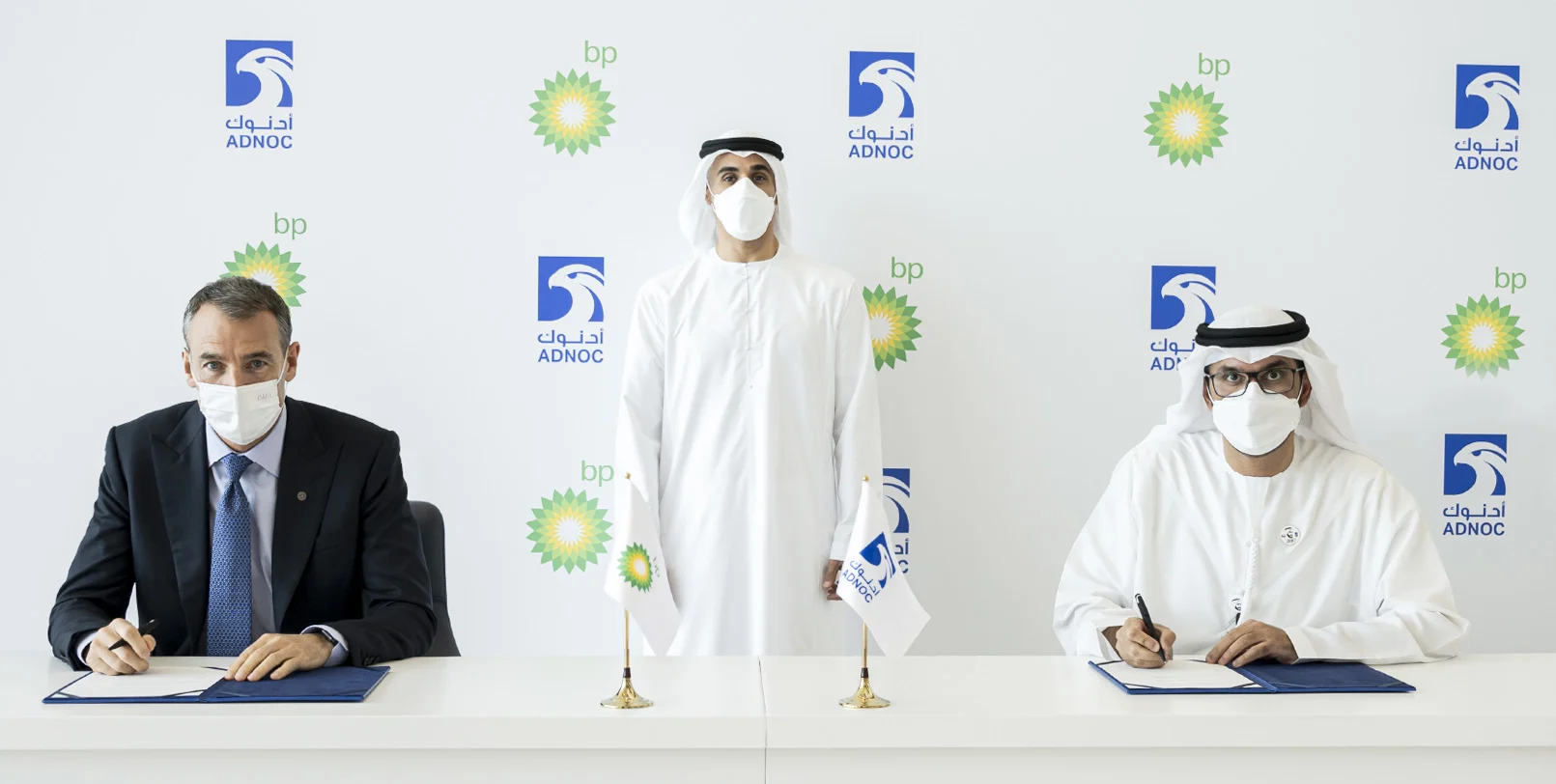

Backing Britain
We’re in action on the challenge to boost home-grown energy and cut emissions. And in the process, we’re supporting new industries, new jobs and new skills.
We're investing billions in the UK over the next decade in..



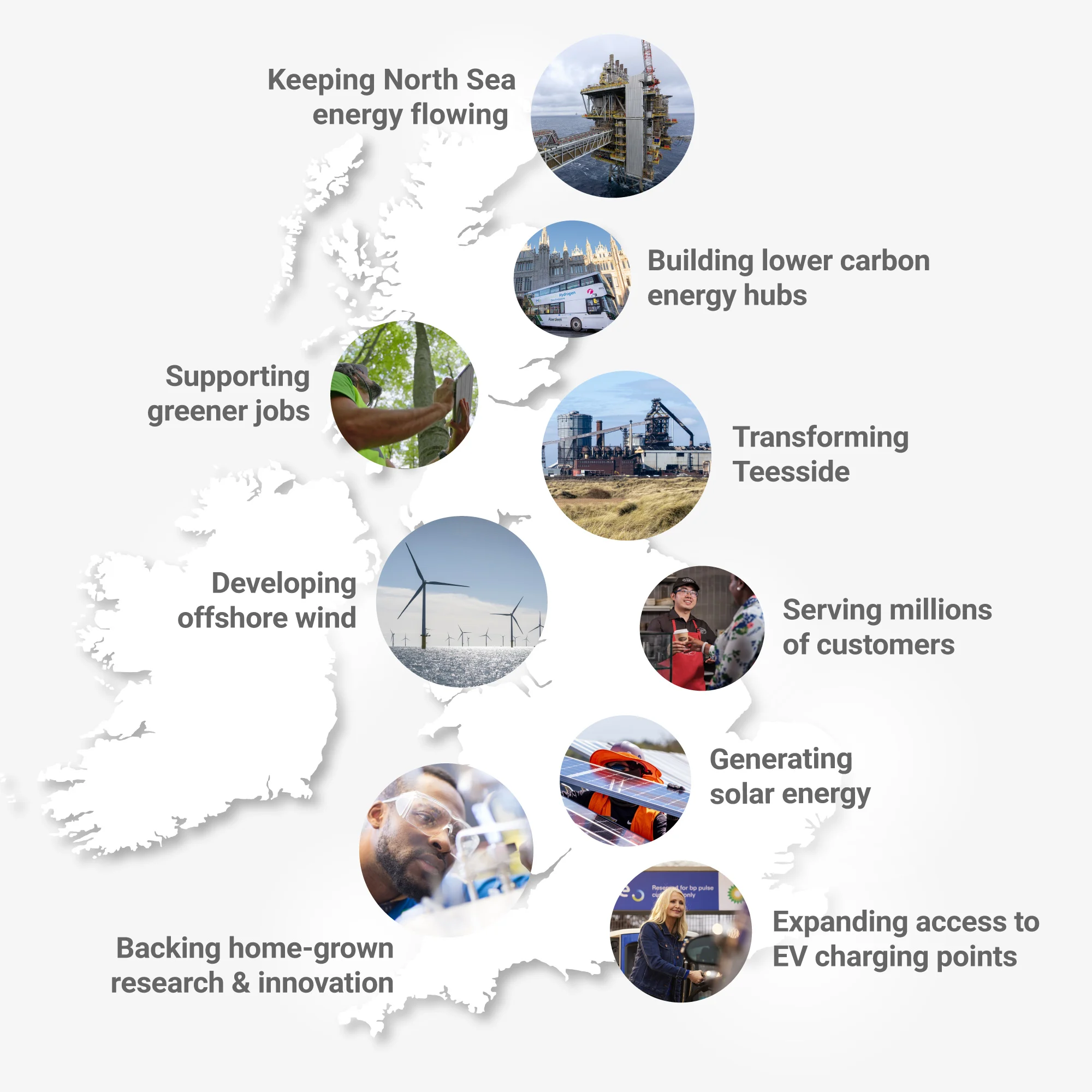


Backing Britain is about using our skills and resources to keep providing the home-grown energy security the UK needs while helping the country to achieve its net zero ambitions.”
Louise Kingham, UK head of country and senior vice president for Europe
Expanding access to EV charging points
bp pulse operates one of the UK’s most-used rapid and ultra-fast EV public charging networks, and over the next 10 years, we plan to approximately triple charging point numbers with a £1 billion investment.
We want to provide drivers with the right speed for the right need, whenever and wherever our customers want it. Take, for example, our project to power up the UK’s largest event space this autumn.
Plugging in ultra-fast chargers
bp pulse is plugging in 300kW ultra-fast chargers at The National Exhibition Centre in the Midlands, where up to 32 EVs will be able to charge simultaneously. The site is located near several motorways, so drivers travelling between cities can also get a quick charge before continuing their journeys. And for those visiting the NEC to shop or watch a show, there are an extra 150 bays with 7kW points available.
“Convenient and reliable ultra-fast charging solutions like this hub at the NEC are critical to the UK’s transition to electric vehicles and that’s game-changing for the adoption of lower carbon road transportation."
Akira Kirton, CEO of bp pulse UK
Certified safe
We want to have the best and safest charging equipment on our network, that’s why we’re proud that bp pulse has become the first EV charging provider to achieve certification to the BSI Electric Vehicle Charging Kitemark for a home charger. New pulse home units will be stamped with the Kitemark – a globally recognized independent mark of quality, safety and reliability.
Investing £1bn to
triple
bp’s charging points by 2030
Coming next...

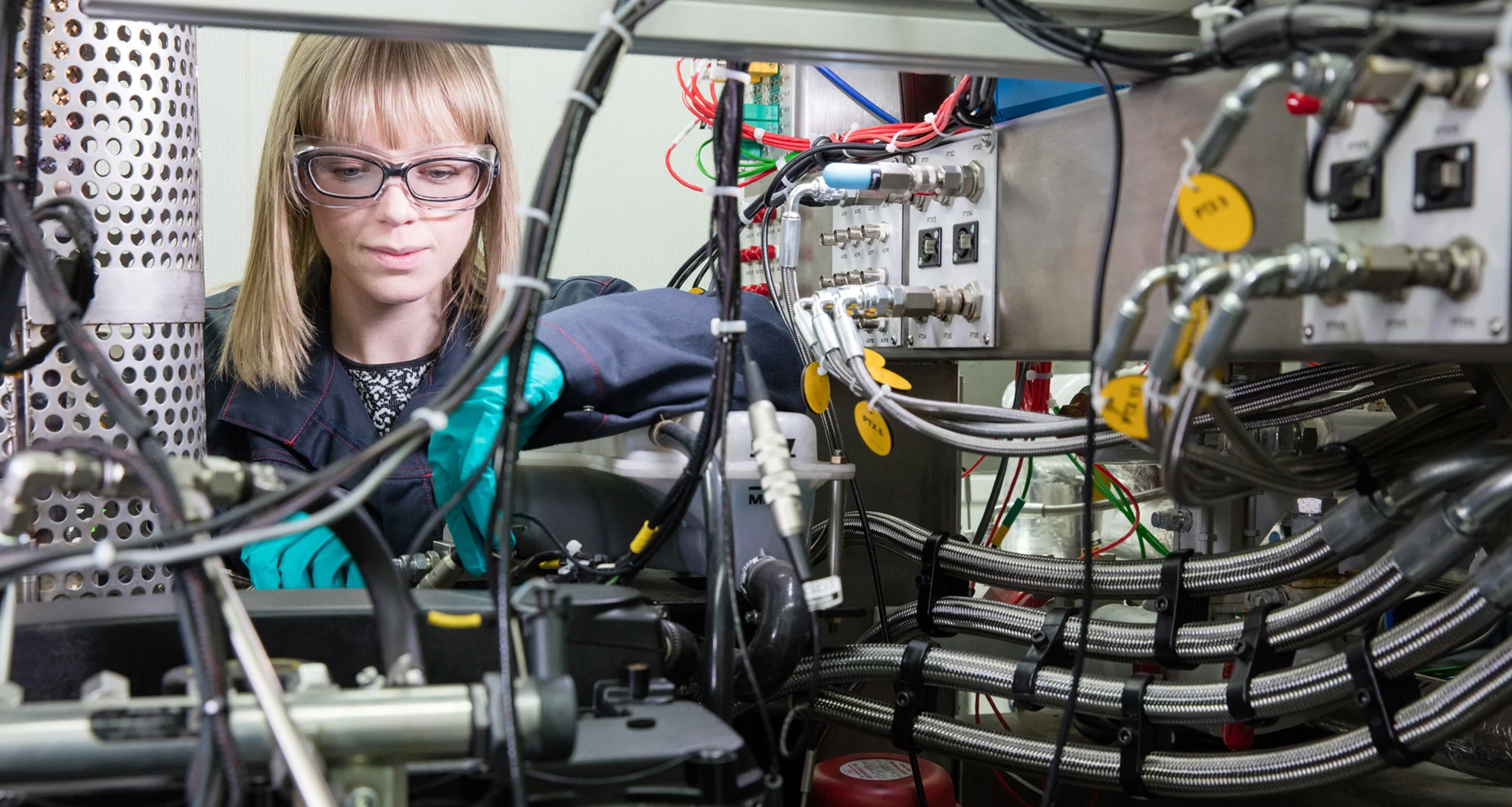
We’ve announced our intent to invest up to around £50 million at our Castrol global HQ in Pangbourne, to develop a state-of-the-art EV battery testing centre and analytical laboratory in the UK, which is planned to open by the end of 2024.

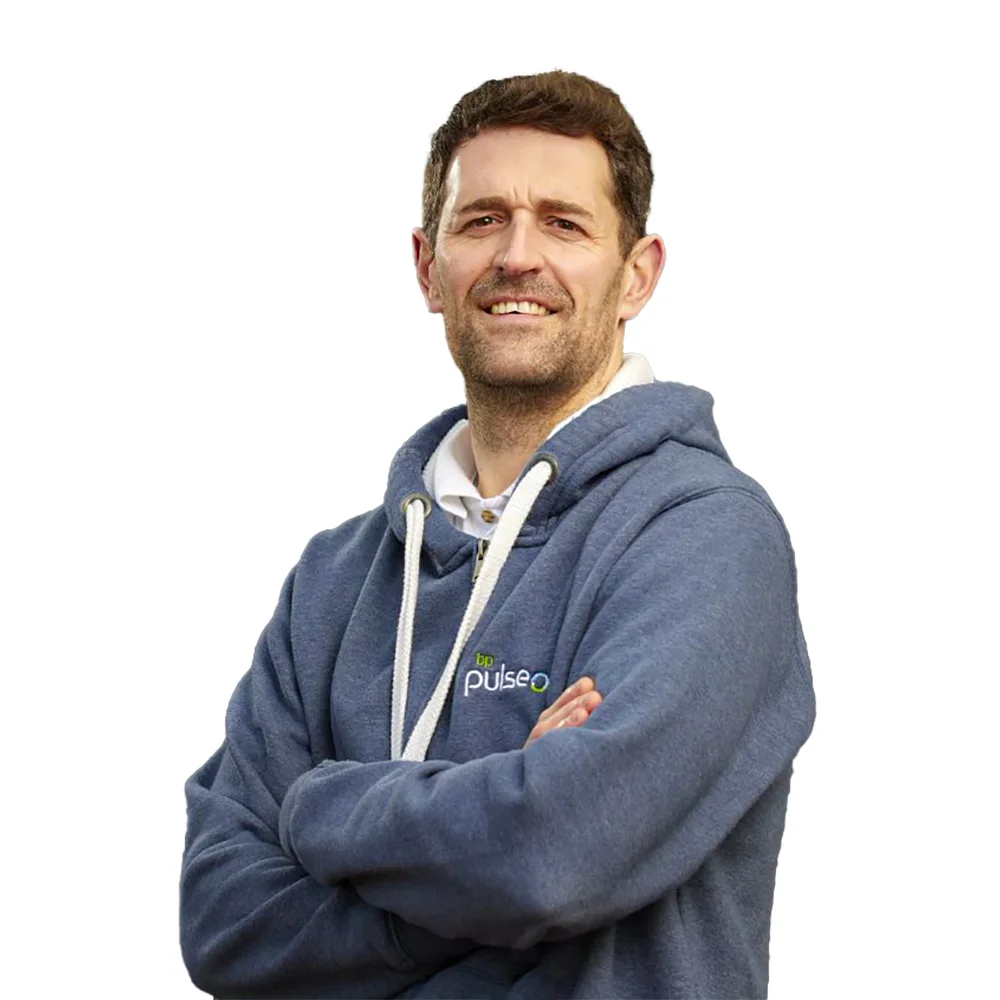
Meet Dave Olive, who is working at the forefront of bp’s UK EV charging rollout
Switching on and switching up
When Dave first started installing EV charging points in 2009, people told him it would never fly.
Now, more than a decade later, bp pulse’s network quality and sustainability manager is still switching on new chargers – but he’s also on a mission to switch them off, too. That’s because he’s driven to make the UK’s largest network also the UK’s most reliable. And that could mean switching off or switching up some of the chargers he first installed in 2010 for much newer technology.
“With the new investment, we’re putting a lot of time and effort into higher reliability – taking out old equipment and using data to predict when chargers are nearing their end of life,” Dave says.
And with key kit upgrades and a UK-wide maintenance team on call 24/7, the ‘network on time’ is higher than ever before. “The whole world is pushing towards evermore charging points and we’re learning about reliability from countries like Germany.”
Keeping North Sea energy flowing
We’ve been bringing a reliable flow of energy from deep below the waters of the North Sea for more than 50 years and supporting thousands of jobs in the process. We’ll continue to invest in the North Sea to produce much-needed oil and gas while lowering emissions.
We’re at work on two new major North Sea projects that will tap into our existing oil and gas infrastructure – boosting home-grown energy supply, but with lower operational emissions. Seagull, which is due online next year, and Murlach, which is in the planning phase, would ‘tie back’ to our ETAP hub in the Central North Sea – removing the need for new-build production facilities.
bp and partners have also confirmed plans to fund a new 1.25-kilometre gas pipeline at Sullom Voe terminal on Shetland, bringing more gas directly to the UK.

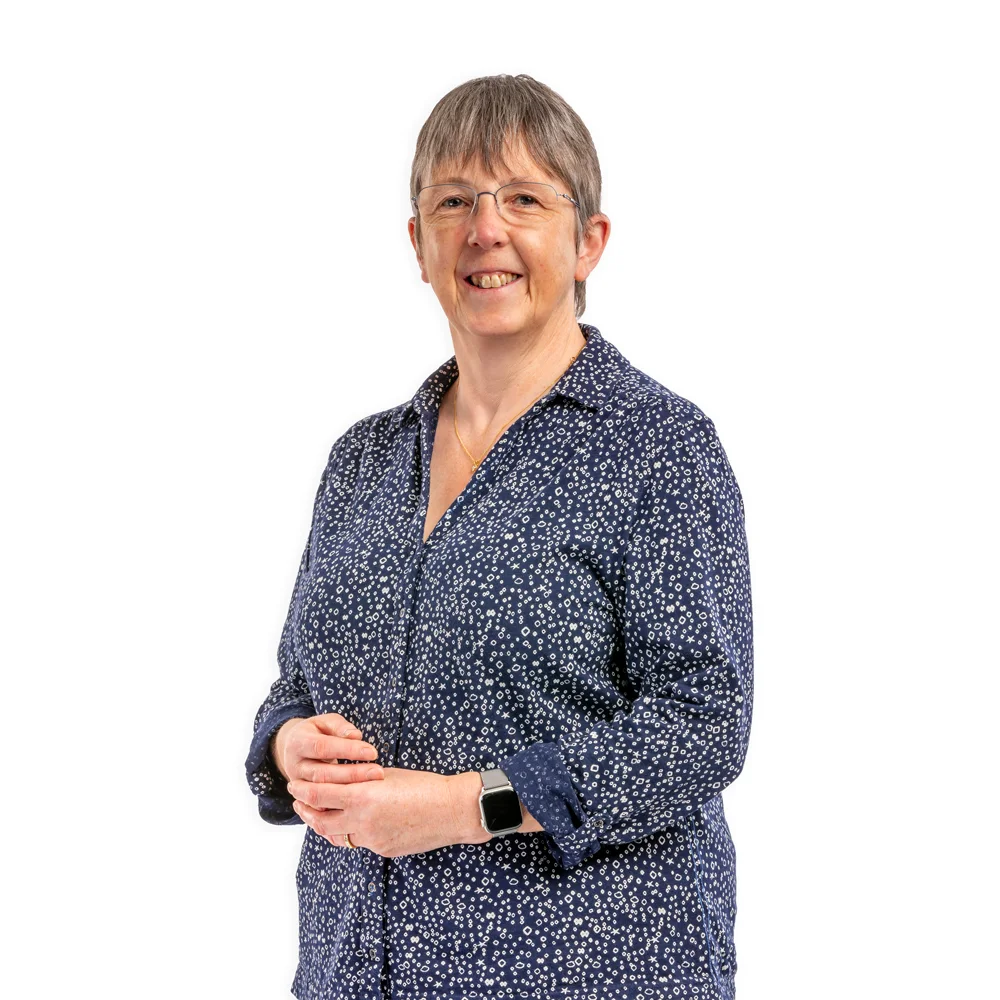
Meet Nicola Stevenson, who plays a leading role in delivering oil and gas projects
Engineering hero
For 35 years, Nicola Stevenson has been using her home-grown engineering talent to supply energy to the world.
After graduating in electrical and electronic engineering from Robert Gordon’s Institute of Technology in Aberdeen, Nicola joined bp’s North Sea team, where she honed her formidable leadership skills. Skills made in the UK were then used abroad in Azerbaijan and Angola. In 2015, she came home, to get energy safely flowing from the giant £4.5 billion Clair Ridge development. Last year, she set her sights on Seagull – a huge and complex North Sea project that she says will be her last before retiring.
She likens the project to “performing open heart surgery”. That’s because the team she leads is updating and modifying the ETAP platform – while it’s still running. With energy security high on the agenda, shutting down is not an option. “It’s around 220,000 hours of work offshore – that’s a lot of work to execute on a live platform,” she says.
What’s her secret? “I bring structure. Set a plan, deliver the plan, set the next plan, deliver the plan.”
When online next year, the Seagull field will significantly boost energy supplies from the North Sea.
A collaborative development between bp, Japex and operator Neptune, it will be ‘tied back’ to our ETAP facility, partially using existing infrastructure to produce and transport new oil and gas supplies. The gas will then be processed at the CATS terminal in Teesside, while the oil will head to Grangemouth, Scotland.
As well as supporting local supply chains, tiebacks like Seagull that use existing subsea infrastructure result in lower operational emissions compared to a new-build production facility.
A roaring success
It’s not just our newest projects that are tackling emissions. Some 175 kilometres west of the Shetland Islands, the team at our giant Glen Lyon facility has done a huge amount of work to cut the floating production, storage and offloading vessel’s annual carbon dioxide equivalent emissions by almost 100,000 tonnes.
Transforming Teesside
The resources, capability and net zero ambition in the UK make it ideal for the development of low carbon hydrogen – described by the UK government as the super fuel of the future. And bp has plans to make it in Teesside.
Work is beginning on a world-class low carbon hydrogen hub that could supply 15% of the UK government’s ambition for 10GW of hydrogen by 2030. Our work in the Teesside region will also see us investing millions in developing green skills to benefit the local job market.
Tackling emissions with CCS and hydrogen
Investing
millions
in green skills
Our plans to take out emissions from some of the hardest sectors to decarbonize not only involve hydrogen, but also carbon capture and storage (CCS). CCS is a tool to decarbonize energy-intensive sectors, such as cement and power generation, by taking emissions from source and storing them underground. Under the government’s net zero plan, the country is aiming to capture 50 million tonnes of CO₂ a year by 2035.
World first

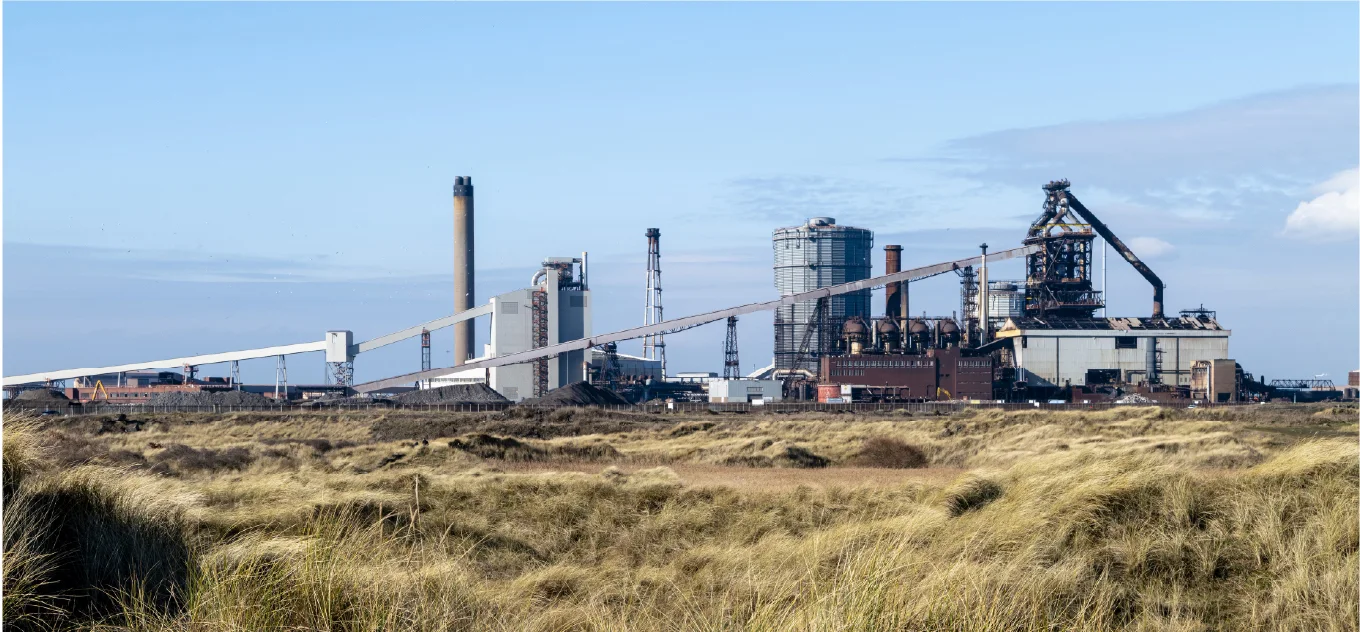
The world’s first commercial-scale, gas-fired power station, with carbon capture, that could provide enough low carbon electricity to power 1.3 million homes.
Fuelling industry

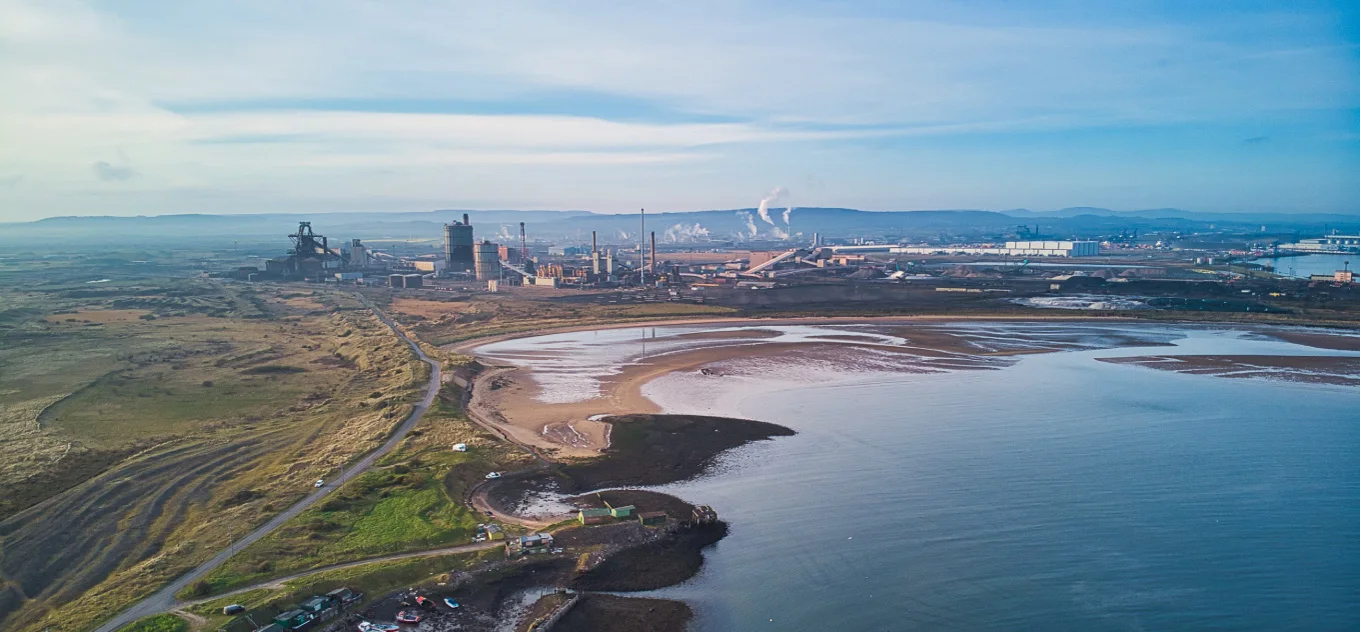
Due online in 2027, this blue hydrogen facility will aim to produce an initial 1GW of hydrogen from natural gas, while capturing and storing up to 2 million tonnes of carbon dioxide every year.
Green trucks


A green hydrogen project that initially aims to make enough clean hydrogen from renewable energy and water electrolysis to power more than 10,000 heavy goods vehicles.
“There is a real sense of pride that Teessiders have a role to play in delivering Teesside’s green energy potential.
And we have the right skills required to help design and operate the pioneering projects that will get us there.”
Tony Smith, proud Teessider and working on bp’s Net Zero Teesside power project
Developing offshore wind
The UK is the gustiest country in Europe, making it perfectly placed to convert wind into clean energy. bp is at the forefront of this effort, building projects in the Irish and North Seas that will create thousands of jobs, while furthering UK plans for more wind power.
For centuries, the British relied on wind power to help them travel the world. Now, this abundant natural resource has the power to help the UK reach its net zero goals, thanks to a growing number of offshore wind developments.
The UK government has set a target of 50GW of offshore wind power by 2030. At bp, we’re already hard at work today laying the foundations for what we expect to be a significant, thriving offshore wind business by the end of the decade.

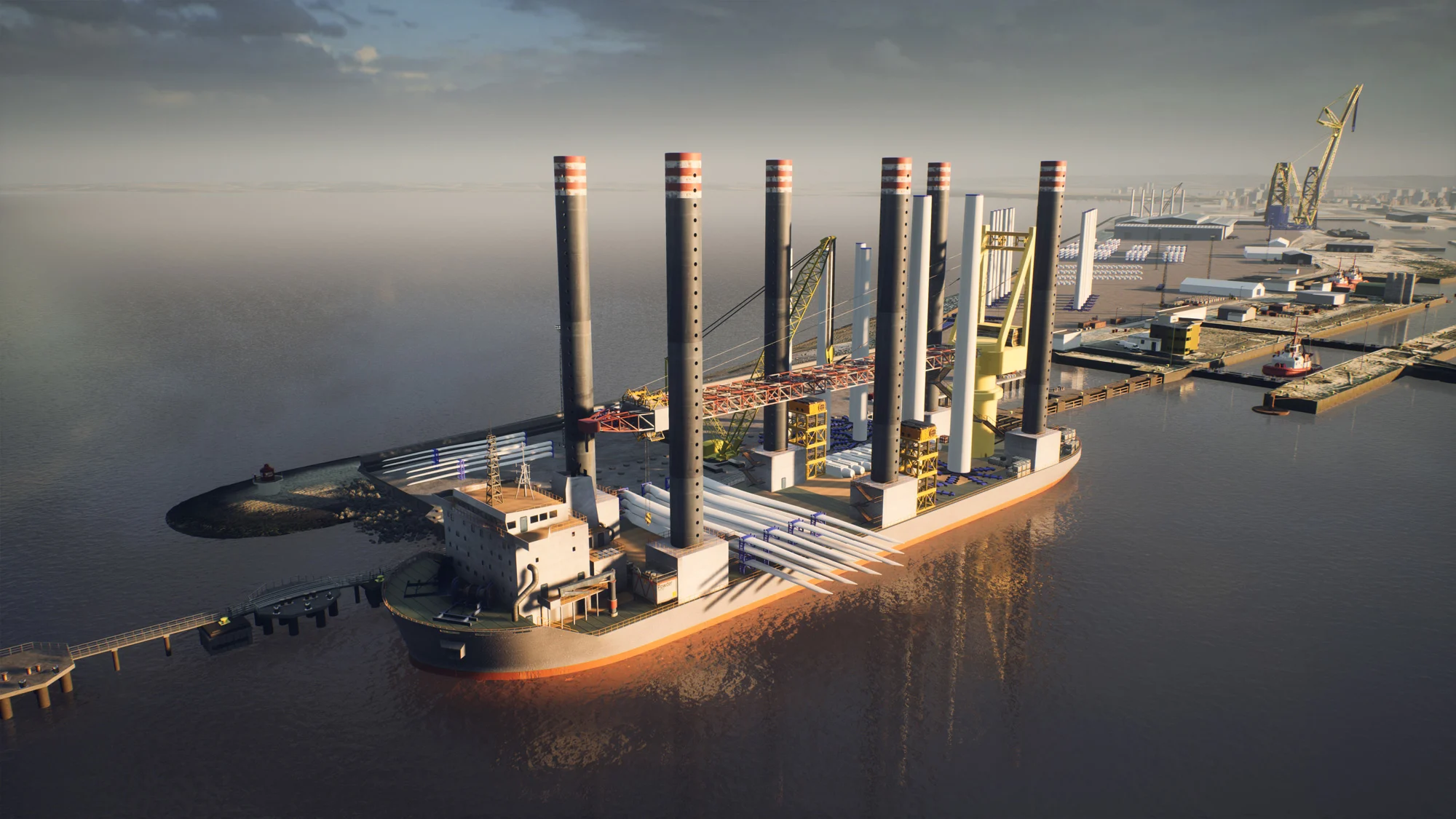
A new wind is blowing
Over the past year, a team of 200 has worked offshore to study the seabed, covering an area the equivalent of 2,000 square kilometres. All to help lay the groundwork for new energy to flow from the Mona and Morgan projects in the Irish Sea and the Morven project in the North Sea. Added together, the team has spent 440 days in vessels that criss-cross the seas. It’s a critical step in getting the turbine blades turning.
All taking us closer to generating enough combined energy to power the equivalent of around 6.4 million UK homes annually, and to support thousands of direct and indirect jobs.
In Scotland, we’re working with the Port of Leith on its transformation to Scotland’s largest offshore wind hub, where our giant offshore wind turbine towers and blades will be assembled and deployed (seen here in a CGI image). The area has been secured as a marshalling port for our Morven offshore wind project by bp and our partner EnBW.
Powering around
6.4 million
UK homes annually


Meet Lloyd McWalters, who swapped a career in oil and gas to help further the energy revolution
Fresh air
Lloyd is advertising to find the best and brightest experts to staff a global centre of excellence for offshore wind based in Aberdeen.
Once up and running, the centre – established by bp and our partner EnBW – will act as a hub of expertise, training, and innovation.
Lloyd was an oil and gas engineer for eight years before joining the low carbon energy team. “The skills set needed to run a wind farm is very similar to the skills set used in oil and gas,” he says.
“And Aberdeen is the right location. It has the right mix of talent and tech companies and is home to suppliers key to both oil and gas and the developing offshore wind business.”
The centre is expected to create up to 120 jobs by the mid-2030s and contribute up to £40 million per year to the UK economy.
“The whole industry is going through a major revolution with wind power at the forefront,” Lloyd says. “It’s so exciting to be involved from the ground up.”
Generating solar energy
UK-based Lightsource bp has become a world leader in developing sustainable and affordable solar energy for use by businesses and communities in the UK and overseas.


Shining a light on solar
Given how much Brits talk about rain, it may come as a surprise to know that Lightsource has developed more than 1.5GW of projects in the UK since 2010, with 316MW coming since Lightsource bp was formed in 2018. From Sheraton Hall in County Durham to Gammaton Moor in Devon, Lightsource bp is currently at work in 14 locations across Britain, developing more projects to power more homes and industry. In total, it has worked on 233 home-grown solar farms, creating jobs and clean electricity.
Lightsource bp has expanded rapidly, seeing its workforce grow from around 300 to more than 800 since 2018, with an expected headcount of 1,000 globally by the end of the year. What’s more, the expertise Lightsource bp has honed in the UK has led to it developing a presence in 18 countries around the world, including Brazil, the US and Australia.
In the US, Lightsource bp has grown into one of the largest solar developers, while in Europe, it’s rapidly expanding into countries such as Spain, Italy, Portugal and Greece.
Serving millions of customers
Around the UK, more than seven million people visit their local bp convenience site every single day. And it’s not just for fuel – shoppers also visit our sites for food only.
We’ve got big plans to keep developing that network and our market-leading convenience. Firstly, through our relationship with M&S Food, which we renewed this year to provide our customers a bigger and better choice of high-quality food options.
And, we’re also developing our own Wild Bean Cafe offers, enhancing our BPme loyalty programme, and continuing to offer speed and ease of purchase to help customers on the go.
More than 90% of the UK population lives within a 20-minute drive of our stores.
More of our sites are now open for delivery to your doorstep. The trend for rapid home delivery started during the COVID-19 pandemic, when we quickly added our sites to the Deliveroo app. It took off further this year, with new sites added to the Uber Eats app in June, allowing more customers access to a range of branded products and our own-brand Wild Bean Cafe products.


bp is the first major energy, mobility and convenience employer to be accredited as a Living Wage Employer by the Living Wage Foundation.


To tackle food waste, all 292 company-owned-and-operated bp M&S Food stores across the UK are signed up to the Too Good To Go surplus food app.
Building lower carbon energy hubs
We’re helping Aberdeen, which has been at the heart of our oil and gas operations for decades, to transform into a climate-positive city.
We’re partnering with Aberdeen City Council to develop a new, scalable green hydrogen facility powered by renewable energy. By 2024, it’s expected to deliver more than 800 kilograms of green hydrogen per day – enough to fuel 25 buses and a similar number of other fleet vehicles. As we scale up production – the potential for which is even greater following our successful bid for a ScotWind offshore wind lease – our goal is to supply larger volumes of green hydrogen for use in rail, freight and marine, as well as for heating and even for export.
Just like our work in Teesside, this is what an integrated energy company can do – bring together different types of energy, deliver for customers, work with partners – and doing all that at real scale.
We’re also collaborating with the Port of Aberdeen on several projects aiming to reduce emissions and lower air and noise pollution from vessels calling to the port. Together, these projects will support new jobs and the development of new skills in the local economy.
Greening transport
Backing home-grown research and innovation
We are investing in game-changing UK science and technology to help the country – and the world – transition to a low carbon future.
Cutting-edge technology
bp’s ventures team targets UK companies that are helping to lower carbon emissions, advance mobility and advance digital technology.
In the 15 years since it was founded, the team has invested £97 million in 15 UK companies.
Our goal is to help Britain develop solutions and businesses to decarbonize. Just as the UK played a meaningful role in the Industrial Revolution, we believe it’s well placed to play a significant role in the transition to net zero.”
Erin Hallock, bp ventures managing partner
Three examples of our investment:
Invested
£97m
in 15 UK companies
Universal autonomy


Founded by two University of Oxford professors, Oxbotica makes software to power autonomous vehicles and robots that can help bp improve safety, increase efficiency and decrease carbon emissions at its sites.
Cutting industrial emissions

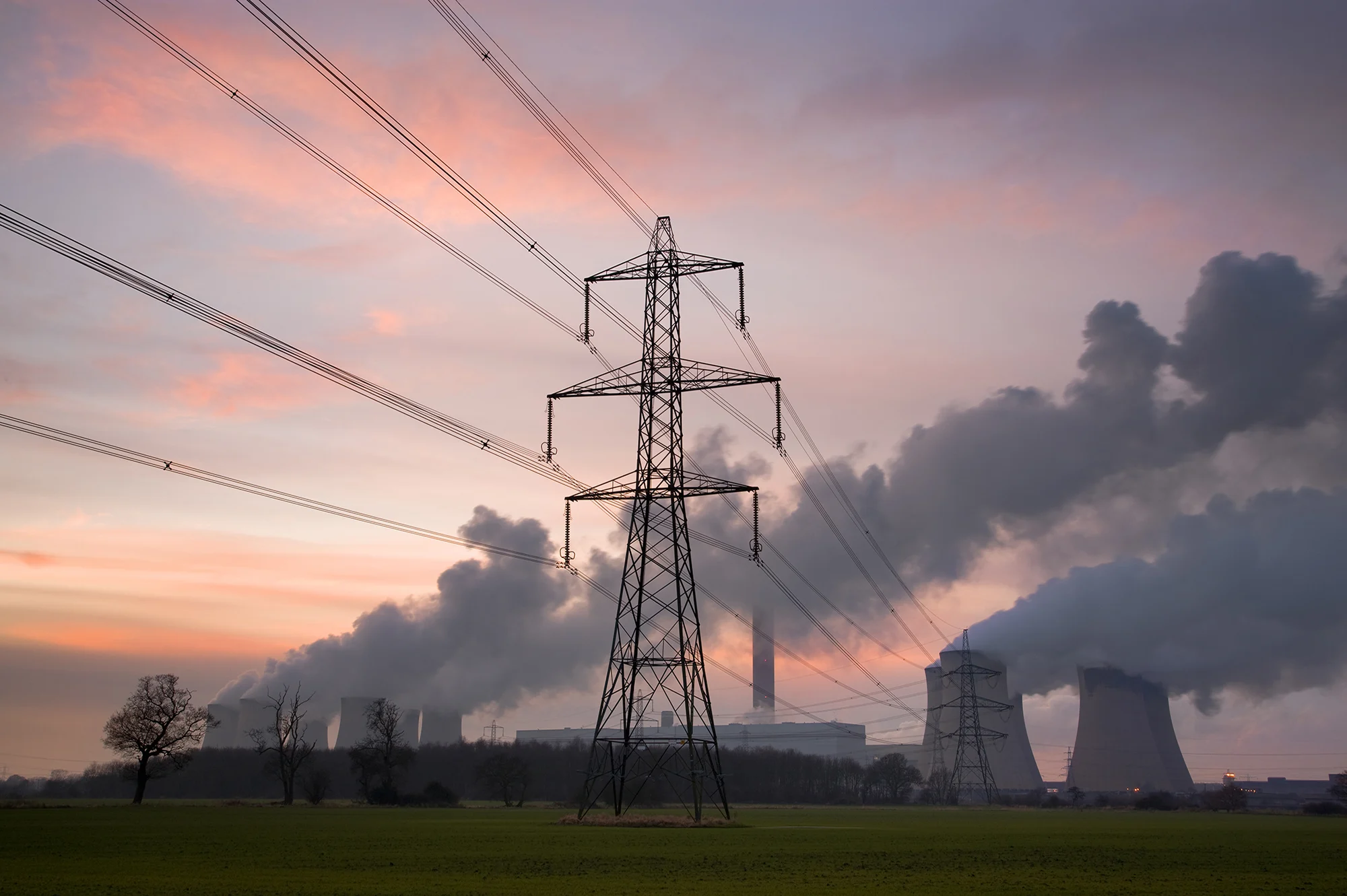
Based in Leeds, C-Capture has created carbon capture technology to remove carbon dioxide from industrial emissions. The carbon dioxide can then be sent for storage in geological reserves, or utilized in some way.
Smart energy


From its Birmingham headquarters, Grid Edge uses digital technology to control and reduce the energy needs of buildings. This helps their customers save money, too.
Supporting science
The UK is at the forefront of the race to find the chemistry that can turn a mound of rubbish into the cleaner fuels of tomorrow, and bp is tapping into that world-renowned expertise.
The director of the Cardiff Catalysis Institute, Professor Wass, and a team of 45 scientists based in labs across the UK are testing the catalysts that could unlock a low carbon future.
Used to speed up chemical reactions, catalysts are involved in the production of around 80% of the products we use today, including fuel. But as the world turns to new sources of energy, new catalysts are needed to work with waste, CO2 and hydrogen.
Cardiff University’s Catalysis Institute is a pioneer in this vital area of science, and it was the obvious place for bp and its partners – chemical company Johnson Matthey and The University of Manchester – to base this five-year, £9 million project.
“The fact that we’ve got this breadth of expertise in the one country is quite distinctive,” Duncan says.
The project’s findings won’t just benefit bp. They are likely to impact the energy sector as a whole.
“This is going to be disruptive technology, not just for bp, but for the entire industry, as countries and consumers look to transition to more sustainable products,” Duncan says.

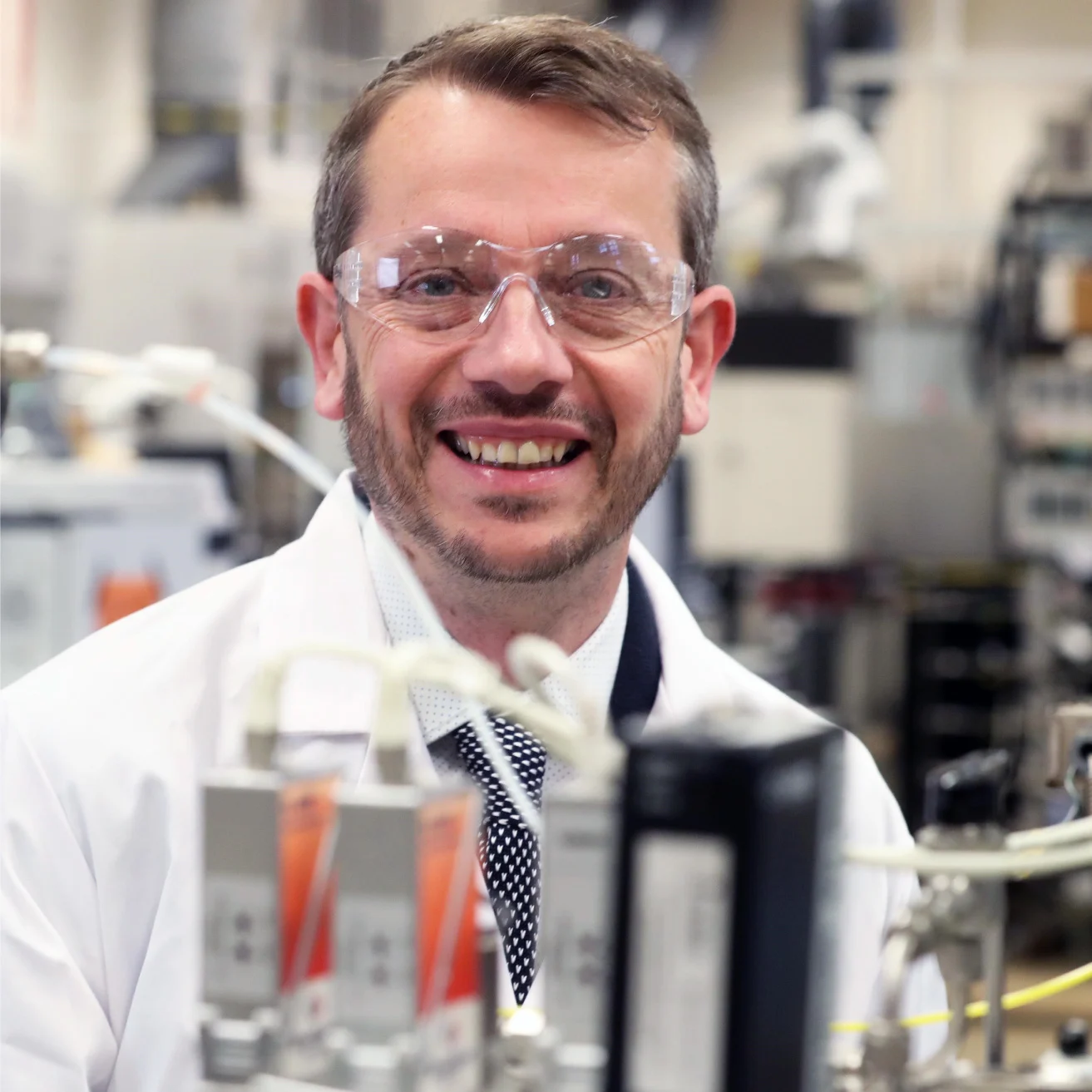
Meet Professor Duncan Wass, whose pioneering work could help to transform the energy industry
Supporting greener jobs
To help boost social mobility in this country, we’re widening access to our apprenticeship programmes by doubling the number of places available globally to 2,000 by 2030. We have provided 440+ apprenticeship opportunities in the UK this year, and facilitated 100+ work experience placements through our partnership with Career Ready.
Just as importantly, we’re boosting access to new skills that will be valuable in the emerging low carbon economy.

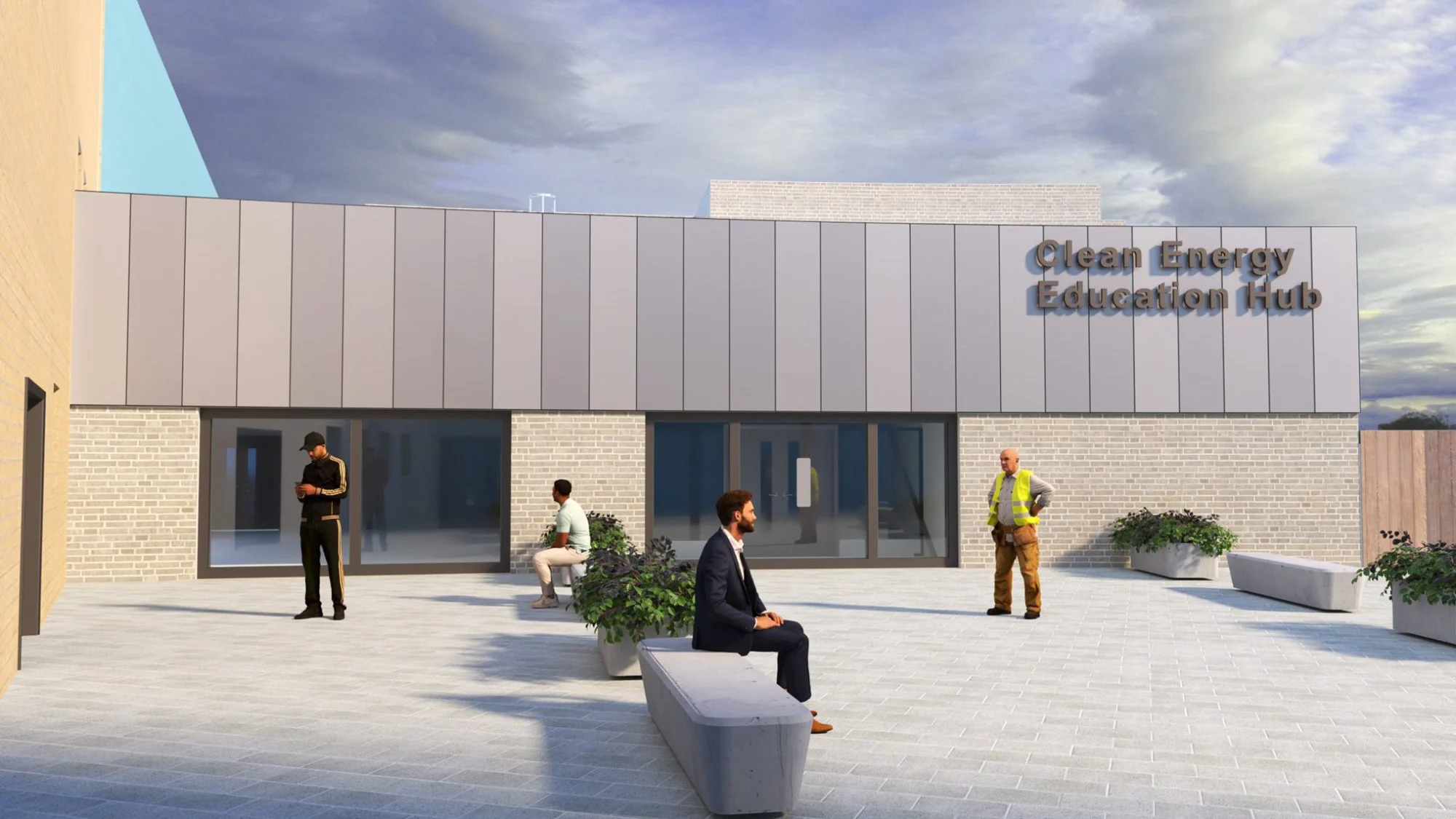
Inspiring the next generation
For example, we are supporting the development of the new Clean Energy Education Hub, part of Redcar and Cleveland College. Construction began in June and the hub is set to open in 2023. The hub will specialize in clean energy and renewable industry training and career pathways for school leavers, apprentices, and adult learners.
Schemes like Redcar and Cleveland College’s Clean Energy Education Hub are helping to give current and future generations the best possible chance to take advantage of the opportunities we’re creating within the safer, cleaner and healthier industries of tomorrow.”
Ben Houchen, Tees Valley Mayor
bp will further invest in green skills by launching a dedicated programme for H2Teesside. Part of a potential multi-million pound programme to reach and inspire the local population and the next generation of talent.
Plus, we are a member of the government’s Green Jobs Delivery Group, which is working to create and support thousands of low carbon jobs.
I left school at 16 to pursue an apprenticeship, for many years, I felt self-conscious that I had not gone to university. Now, I believe it’s made me who I am today. There’s no shortage of facts that lay bare the issue of poor social mobility in this country.
That’s why we’re working with organizations across the country to improve the situation. bp is proud to play its part."


Kerry Dryburgh, executive vice president, people & culture, who is behind the drive for greater social mobility


Meet former North Sea engineer Hisham Hamid, who now works to boost social mobility at bp
Helping hand
Hisham qualified for free school meals when he was growing up in Middlesbrough, northeast England.
The school he attended was in a social mobility cold spot, but despite this, Hisham applied to study chemical engineering at university and went on to achieve a first-class degree.
It was social mobility initiatives that, he says, helped to keep him in education and later go on to qualify as an engineer; initially working in bp’s North Sea oil and gas business.
He now works in our people & culture team as an education and employability advisor, where he co-leads bp’s social mobility strategy.
“For me, social mobility is not just about helping someone through their early career. It’s also about breaking cycles of deprivation that can have a major impact on the course of someone’s life,” says Hisham.
Partnerships to attract new investment
As we transition to net zero, bp is spurring new overseas investment in the UK. Our commitment to home-grown energy has helped to reinforce the world-leading role that the country can play in developing new energy supplies.
We’re excited to be working with ADNOC and Masdar, to bring international participation to bp’s planned blue and green hydrogen developments in Teesside.


ADNOC – the UAE’s largest energy company – will make its first investment in the UK, taking a 25% stake in the design stage of bp’s blue hydrogen project, H2Teesside.


Masdar – the Abu Dhabi renewable energy company – has signed a memorandum of understanding to acquire a stake in bp’s proposed green hydrogen project, HyGreen Teesside.



